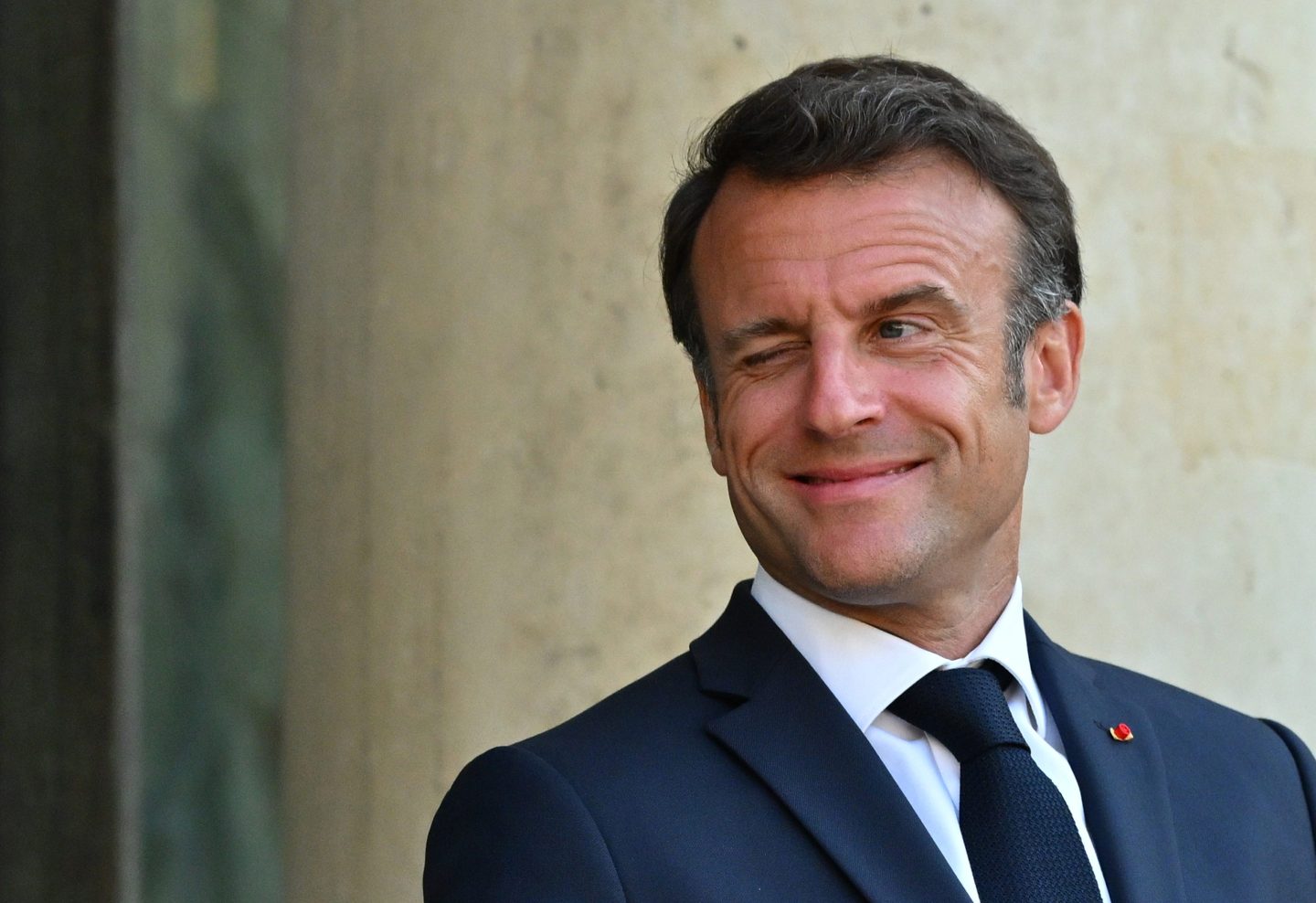Good morning, Peter Vanham here in Paris, filling in for Alan.
In the U.S., A.I. leaders nowadays are warning Washington to regulate the technology before it will “destroy humanity.” But in Paris, French President Emmanuel Macron is urging French A.I. startups to catch up to their American and Chinese peers rather than threatening to regulate or tax them. “We’re going to invest like crazy [in A.I.],” he said at Vivatech, a large tech summit I attended here yesterday.
One of the entrepreneurs who shared the stage with Macron likely relished that message. Arthur Mensch co-founded Mistral AI, the four-week-old French startup that raised $113 million earlier this week despite having few employees, much less any products in development. With Macron’s nod of approval and its three “A.I. expert” co-founders, Mistral AI seems destined for a significant role in France’s nascent A.I. industry.
The speed at which A.I. companies like OpenAI and Mistral announce either massive new funding rounds or breakthroughs contrasts another industry on everyone’s mind: The green energy ecosystem.
In two separate sessions I moderated at Vivatech yesterday, scientists and executives talked up the promise of two much-hyped technologies—nuclear fusion and hydrogen—but pointed to a pace of advancement that’s far slower than that of generative A.I.
Take nuclear fusion. Kim Budil, the director of Lawrence Livermore National Laboratory in California, told me of her lab’s historical breakthrough late last year: for the first time ever, they achieved “energy gain” from nuclear fusion. It took 60 years, billions of dollars in annual public funding, and the work of 8,000 scientists. And Budil admits a commercial application is at least 20 years down the road and will require billions more in private and public money.
Hydrogen, another promising low carbon technology, is further ahead yet just as far away from reaching its full promise. The founders and executives I spoke to talked up hydrogen’s potential in decarbonizing hard-to-abate industries like steel production, heavy-duty transport, and aviation, but say the sector still needs billions of dollars in government support to get there given the gap between supply and demand.
The bottom line? A.I. and the green transition stand a good chance of being the two key drivers of the world’s next “industrial revolution.” But as crucial as they may be(come), we would do well to also remember Amara’s Law: we tend to “overestimate the impact of technology in the short-term and underestimate the effect in the long run.”
More news below.
Peter Vanham
peter.vanham@fortune.com
@petervanham
TOP NEWS
Debt ceiling
Citigroup is blaming the recent fight over raising the debt limit for a 20% drop in trading revenue this quarter. CFO Mark Mason said Wednesday that uncertainty about whether the U.S. would default on its debt for the first time suppressed client activity. The U.S. bank has also set aside severance payments for 5,000 employees so far this year, Mason said. Bloomberg
China's World Bank
Canada is halting its involvement in the Asian Infrastructure Investment Bank after the institution’s communications chief unexpectedly resigned. The executive, Bob Pickard, a Canadian national, accused Chinese Communist Party officials of infiltrating the bank. The AIIB, which China helped establish in 2016 as an alternative to the World Bank, called Pickard’s comments “baseless and dispiriting.” Financial Times
Jobless young
China’s youth unemployment climbed in May to hit a new record of 20.8%, the country reported Wednesday evening. Joblessness among those aged 16-24 is now four times higher than China's overall unemployment rate. China's post-COVID economic recovery is stumbling, with the country reporting slowing growth in both retail sales and industrial activity. CNBC
AROUND THE WATERCOOLER
Google CEO Sundar Pichai: We’re in a better position to crush it with A.I. than we were in mobile by Stephen Pastis
YouTube stars like MrBeast and Adam Waheed are using A.I. to speak different languages and ‘supercharge’ audience growth by Alexandra Sternlicht
Bosses are fed up with remote work for 4 main reasons. Some of them are undeniable by Jane Thier
Millennial and Gen Z economic malaise is creating a ‘treat culture’ as they turn to tiny purchases for a dose of daily escapism by Chloe Berger
This edition of CEO Daily was curated by Nicholas Gordon.
This is the web version of CEO Daily, a newsletter of must-read insights from Fortune CEO Alan Murray. Sign up to get it delivered free to your inbox.













